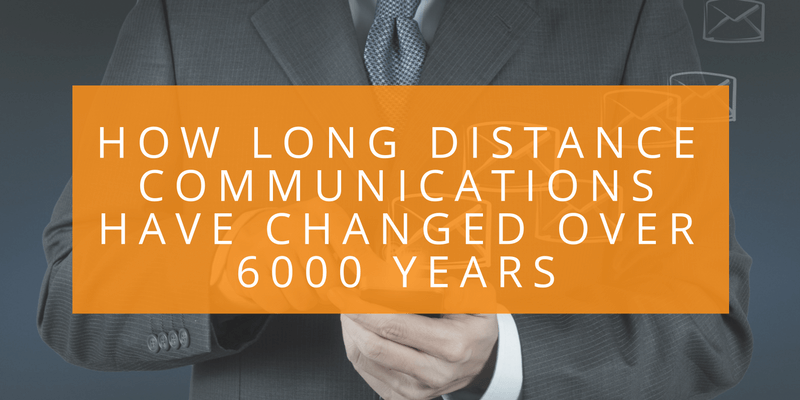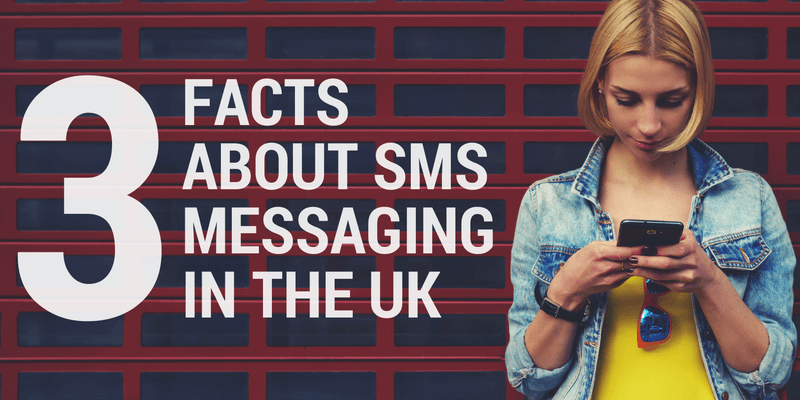5 Amazing SMS Statistics from Salesforce

Every year Salesforce releases its State of Marketing report. It offers insight into how marketers use and see the various tools and channels available today.
In the 2016 report, much of the content focused on social and email, but also included a good deal of information on mobile marketing too. I’ve pulled out some interesting statistics regarding SMS which are pretty amazing. But first I wanted to say that the report includes input from marketers around the globe. Just over 30% were from the US, but the rest were from many different geographical locations. For example, the UK, Japan, Brazil, and Australia are a few other countries that are included (not an all-inclusive list).
2016 saw a 111% growth in SMS usage to engage customers. That’s a huge increase, especially with the fact that messaging apps have caused a decreased SMS usage in general. But not for marketing. As many discover, SMS can reach anyone with a mobile phone. No app needed, which is why it is a growing marketing channel.
Only 51% of the respondents were currently using SMS. Another 19% were planning to use it in the next 12 months. What’s amazing about this is that it is still so low. Marketers have many options when it comes to mobile and not everyone chooses SMS (they go for apps or ads). This is great news for those that do because it means that people’s SMS inboxes aren’t becoming saturated – yet.
79% of marketers say that mobile marketing is core to their business. This percentage includes SMS as a channel in mobile marketing. As the statistic above shows, not everyone in that 79% is using SMS. But given their strong belief in mobile, they’ll likely be looking to expand to it in the coming years.
50% say mobile is directly linked to business primary revenue. And 77% say it generates ROI which is an 147% increase over last year’s data. My take on this is that companies are really figuring out how to do mobile. “The year of mobile” has already come and gone for the ones who have taken the time to work it out. They’re reaping the benefits while others are still getting their feet wet.
80% say exclusive deals were the most effective offers. In second place was loyalty offers at 78%. This is a small shift from last year where loyalty was the number one most effective offer. However, these were not the most popular types of offers. MMS and app-based mobile ads were the most popular types of offers, but they had an effectiveness rating of 59% and 61% respectively. Note, MMS isn’t the same as SMS.
All of these statistics have something amazing or surprising about them. But there’s a few more statistics (bonus!) that I’ll share from the 2015 report as they weren’t presented in this year’s version.
Effectiveness of SMS in companies that have integrated mobile into their overall strategy is 73%. For those companies that haven’t adopted an integrated approach the effectiveness is only 50%. Overall, only 40% said they had an integrated approach at all. What an amazing fact: you dramatically increase your effectiveness when you integrate SMS with your overall strategy.
I think these statistics show that SMS is one of the best channels for mobile marketing. The numbers also show there’s an opportunity here for companies that haven’t started using it yet. But how long will it last? Before long SMS may become as popular a channel as email and the return may not be as good as it is now.
What do you think? Will SMS ever become a saturated channel or is it by nature self-limiting?
Related Articles
3 Tips to Help You Time Your SMS Marketing Campaign
Timing is everything. While it’s an axiom everyone can understand and agree on, it’s doubly true when it comes to SMS marketing. If you send your messages at the wrong time, you’ll see your opt out rates jump and your ROI plummet. So when should you send your text marketing messages? Here are three key guidelines to help you schedule your next campaign.
SMS Messaging is Much Better Than Shouting!
Just in the last 60-70 years, communications have gone from requiring a person to route the calls to not needing anyone other than the two people at either end. It all got me wondering about the history of communications and how much different it is from even just a 100 years ago, or a thousand. The result of my wondering is this infographic that covers most of recorded history (at some level of detail anyway).
Why Using SMS for Customer Service is a Good Thing
Customer service is arguably one of the most important parts of any organisation. Happy, loyal customers spend more and ultimately bring you more business through positive comments and referrals. Here's why SMS is crucial to maintaining high levels of support now and for the future.
12 Reasons Mobile Messaging is “A Beautiful Thing”
Beauty is in the eye of the beholder. But could text messaging really be considered beautiful? You might argue that it depends on the messages you get! That’s a valid approach, but I recently found a description of mobile messaging that made me believe it is indeed beautiful, so I thought I’d share it with you.
Do You Ever Unplug From Your Mobile?
While it’s undeniable technology is a growing part of our everyday lives, it may be surprising how few of us ever turn it off. Or leave it behind. Most people rarely 'unplug' from their mobile devices. This provides unparallelled opportunities for marketing, especially via SMS text messaging.
5 Amazing SMS Statistics from Salesforce
Every year Salesforce releases its State of Marketing report. It offers insight into how marketers use and see the various tools and channels available today. In the 2016 report, much of the content focused on social and email, but also included a good deal of information on mobile marketing too.
3 Facts about SMS Messaging in the UK
Do people really like getting SMS messages? Is it true they’re using Apps like WhatsApp instead? A recently published survey reveals those answers, and a few more. Find out the details on how SMS messaging is used and viewed in the UK in this blog.
3 Reasons SMS Messaging is Good For The Environment
Many organisations are looking to operate in a more environmentally friendly way. This includes everything from their office supplies, materials used in creating their products, and also choosing suppliers and vendors that are also environmentally aware. And now, SMS.
Advantages & Disadvantages of SMS Marketing
SMS marketing is very different to most other more traditional marketing tools, specifically because of its short-form, text only nature. This certainly shouldn't put you off though. We have put together our guide to both the best things about SMS marketing and some of the potential problems, and how to work around them.
Proof SMS Messaging Gets Results: Opt-Ins
SMS messaging is one of the most effective mobile marketing channels. The proof is in the data, of course. In this blog post, you’ll discover how many opt ins businesses get, and how quickly they get them once they give SMS messaging a go.











